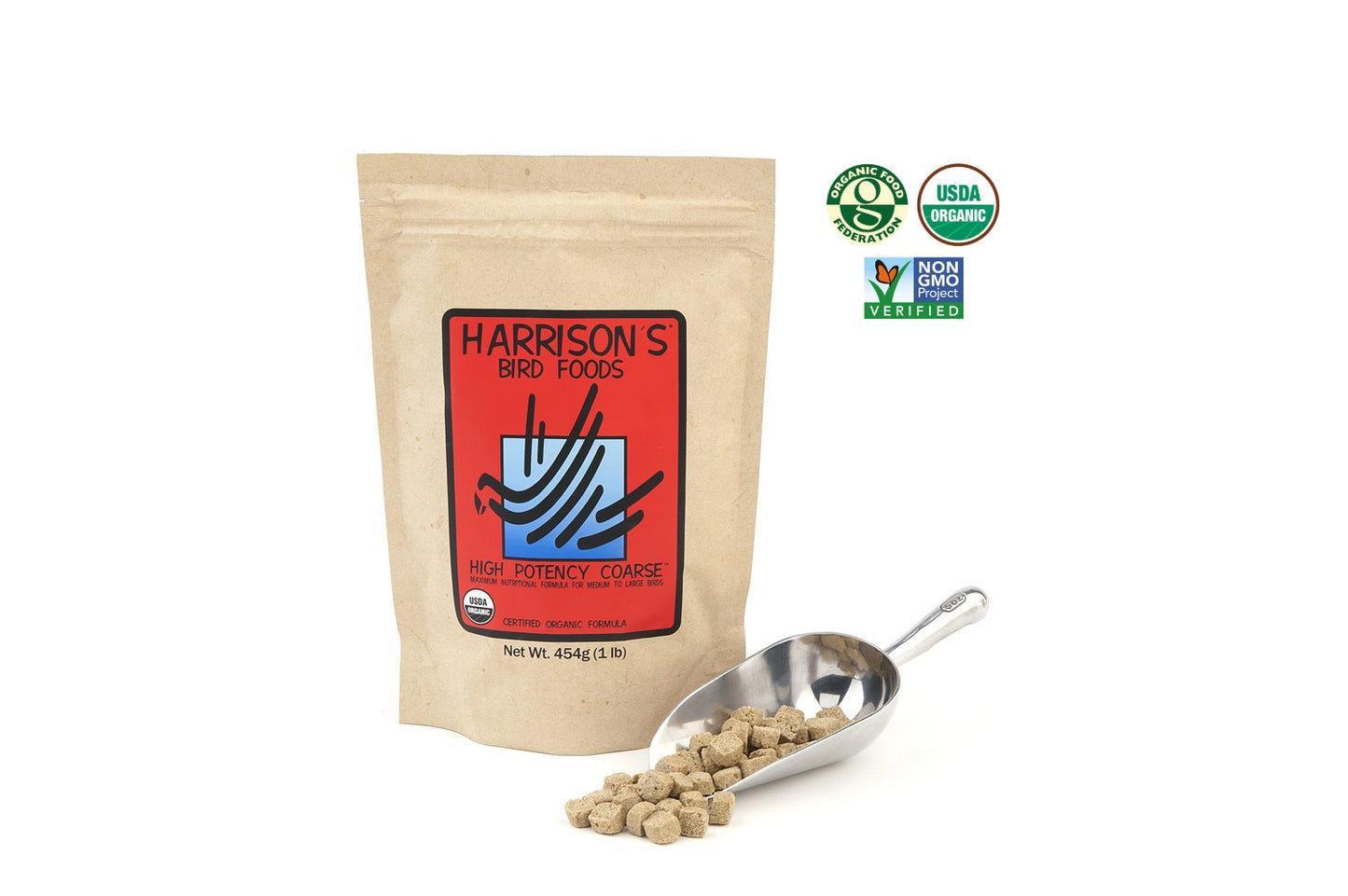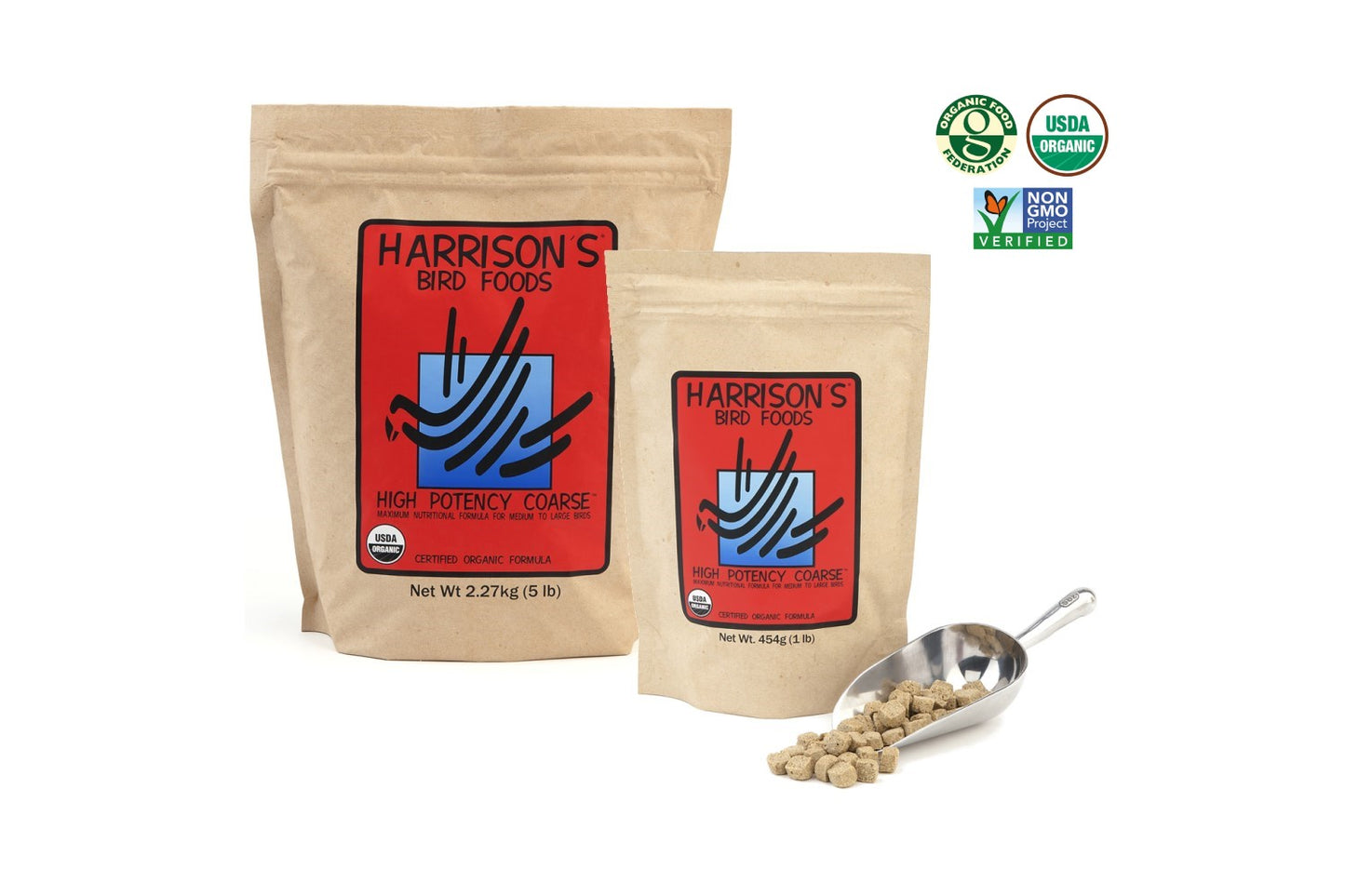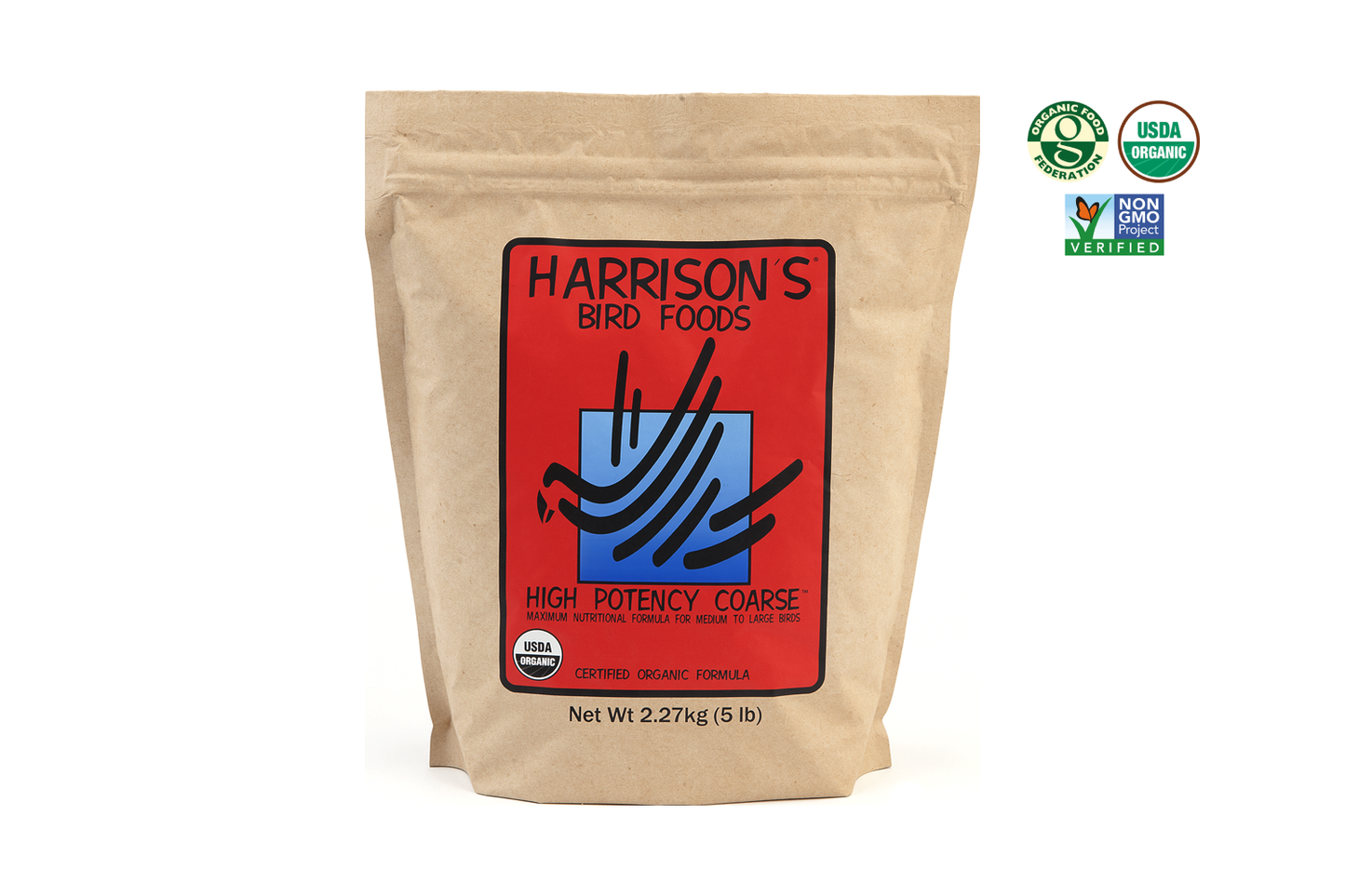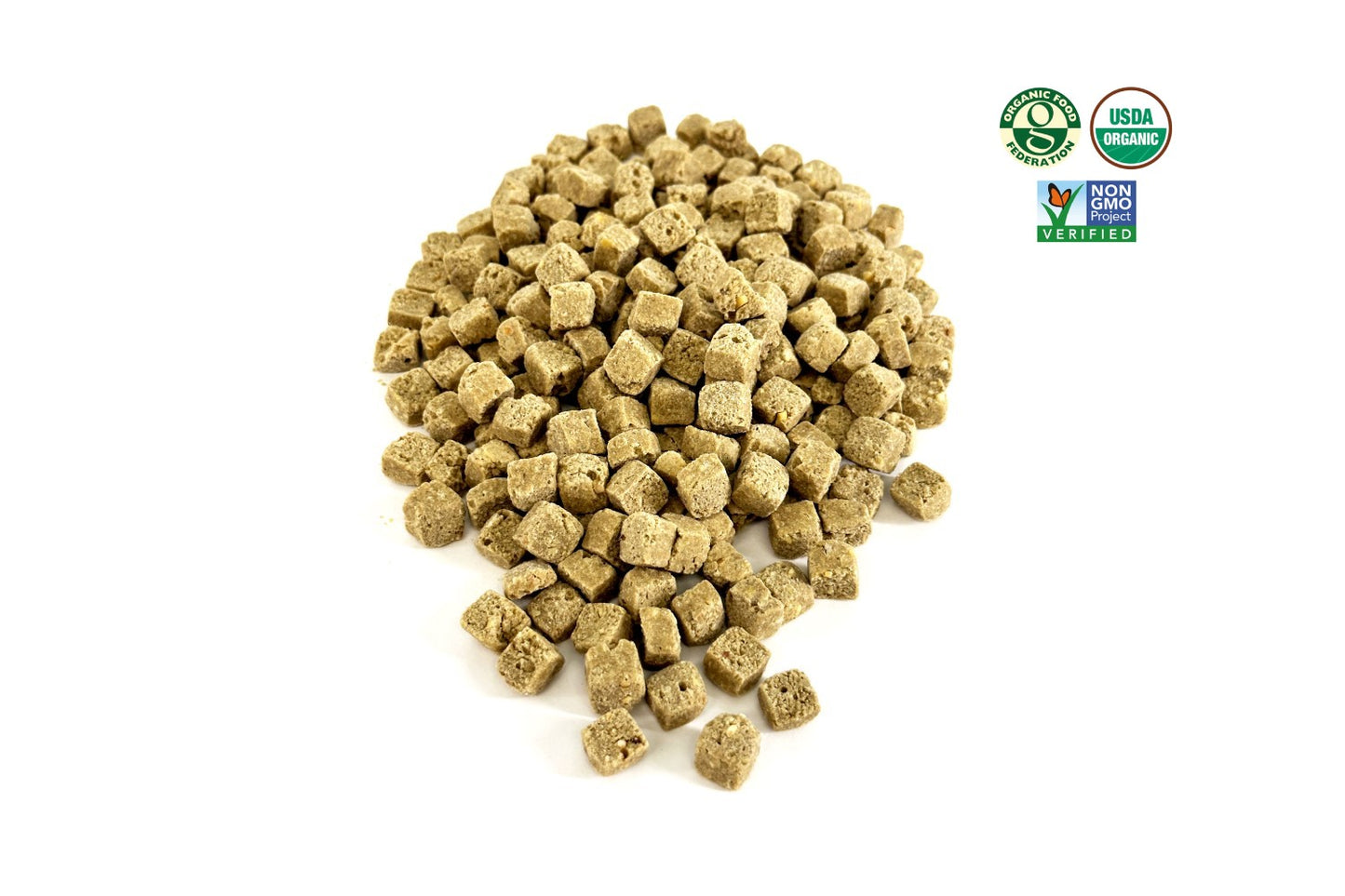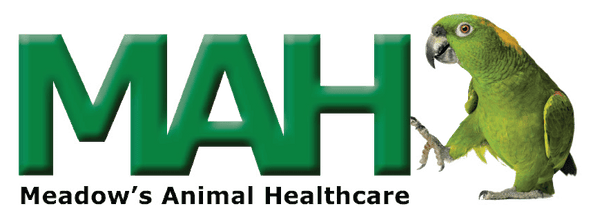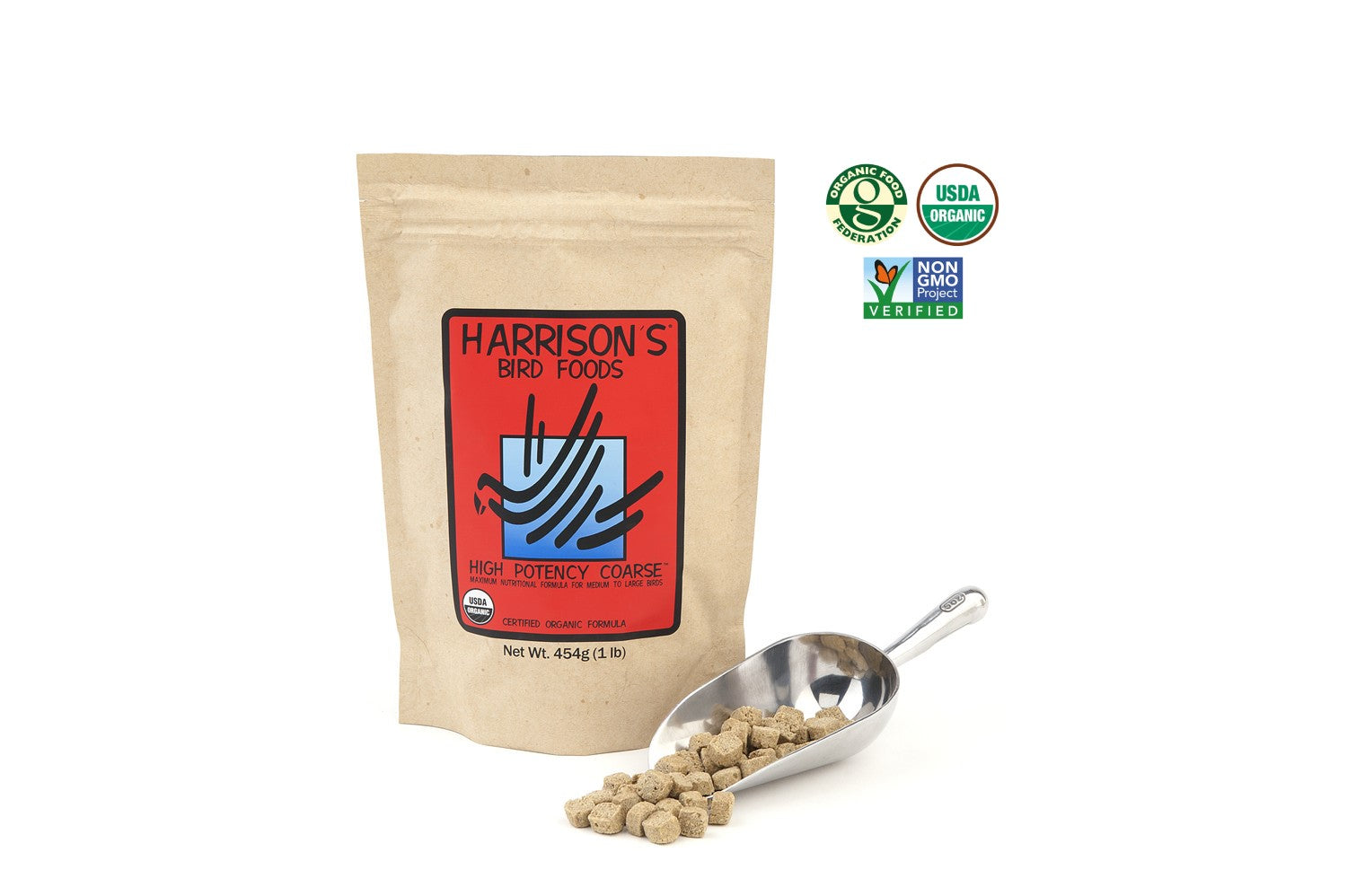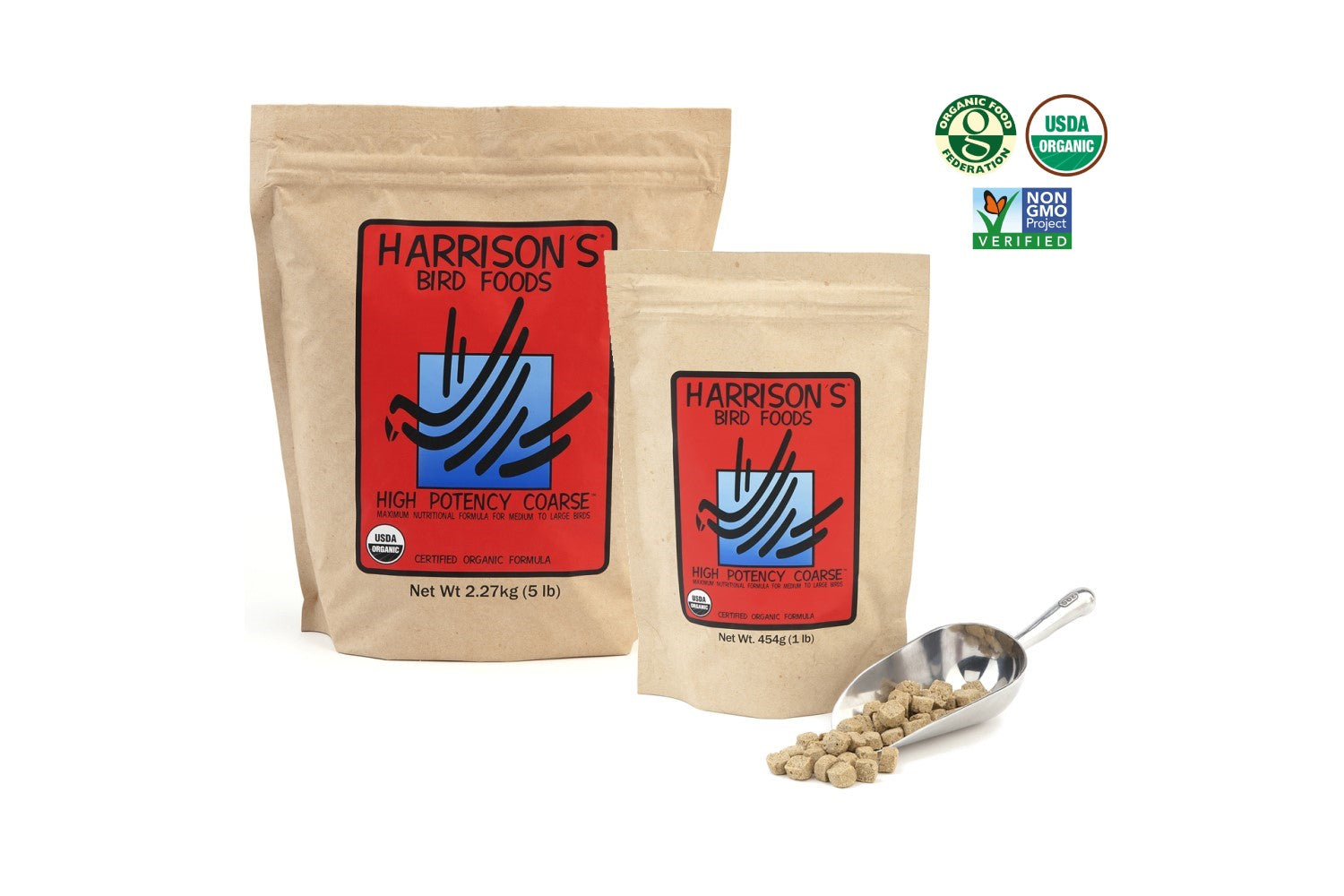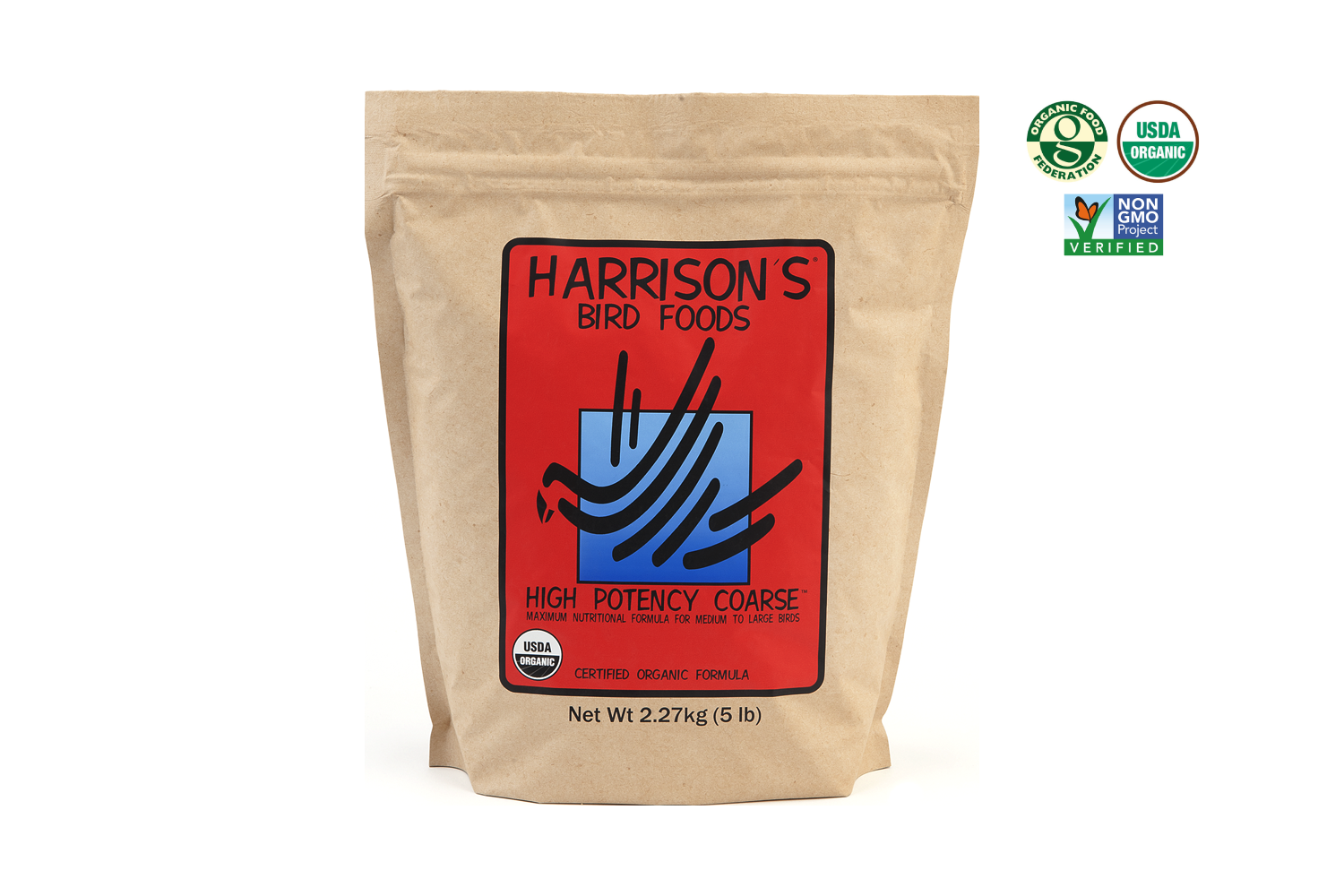High Potency Coarse
High Potency Coarse
Couldn't load pickup availability
The scoop in any images is shown for illustrative purposes only.
Part of the Harrison's range of complete, certified organic, foods for pet birds, High Potency diets are suitable for almost all birds starting on Harrison's, and are the maintenance diet for birds needing a relatively higher energy diet (specific species, birds recovering from illness or moulting heavily, breeding birds, etc). The Coarse size of piece is usually preferred by larger parrots, such as Macaws, Cockatoos and African Greys.
RECOMMENDED USES
- For medium to large parrots that are being converted from seeds or any other diet. See Dr Harrison explain the benefits of High Potency diets for birds who are converting here.
- Some species, such as African greys and Amazons, should initially be fed High Potency Formula for a period of at least 6 months before switching to an Adult Lifetime Formula.
- Some species, such as African greys and Amazons, should initially be fed High Potency Formula for a period of at least 6 months before switching to an Adult Lifetime Formula.
- As a year round formula for cockatoos, large conures, eclectus, macaws and pionus.
- For birds that have special needs such as birds that are moulting, overweight, underweight, particularly active, housed in a cold climate, recovering from an illness or affected by liver or kidney disease.
- For birds that are weaning. Birds should be fed High Potency Formula for at least 6-9 months.
- For birds that are breeding.
FEEDING DIRECTIONS
- Feed fresh Harrison's daily - don't just 'top up' older food
- To help reduce waste, feed as distinct meals
- Birds may eat all they want, but use the table below as a guideline
Suggested daily amounts
| Species | High Potency Coarse | Additional foods |
|---|---|---|
| Pionus | 10 - 15g (1 - 1½Tbs) | ½ - 1 tsp |
| Amazon / Eclectus | 15 - 30g (1½ - 3 Tbs) | 1 - 2 tsp |
| African Grey | 15 - 30g (1½ - 3 Tbs) | 1½ - 2 tsp |
| Cockatoo | 15 - 50g (1½ - 5 Tbs) | 2 - 3 tsp |
| Macaw | 20 - 60g (2 - 6 Tbs) | 2 - 4 tsp |
Feeding of additional items
- Harrison's products should make up 75-80% by volume of your bird's diet.
- It is recommended that 20-25% by volume of the overall diet should be good quality, ideally organic, vegetables and fruits. Dark yellow meaty, or dark green leafy, items such as sweet potatoes, carrots, pumpkin, winter squash, broccoli, parsley, spinach, mango or papaya are the most beneficial.
- It is not recommended to supplement with vitamins or other bird or animal supplementary products.
[For birds with suspected iron-storage disease: Avoid citrus fruits, tomatoes, kiwi, strawberries and other foods containing vitamin C. Avoid grapes, currants, raisins, liver, red meat, egg yolk or dark green vegetables such as spinach, which may contain high levels of iron.]
STORAGE INFORMATION
- Once opened, use the bag within 8 weeks. Due to the organic nature of the product for your bird's health, the food contains no artificial preservatives.
- Keep food in its original bag. Do not repackage into plastic bags or containers.
- Squeeze all air out of the bag before closing and 'zip' it shut at the top - if the 'zip' becomes damaged, fold the top open and close with a clip or clothes peg.
Composition: *Hull-less barley, *Sunflower kernels, *Toasted soybeans, *Whole corn, *Peas, *Lentils, *Peanut kernels, *Brown rice, *Toasted oat groats, *Alfalfa, *Psyllium, *Chia, Calcium carbonate, Bentonite, *Dried kelp, Salt, *Dried algae.
* = CERTIFIED ORGANIC INGREDIENT
Nutritional additives per kg: Vit A 4500IU; Vit E 300IU; Vit B3 46.9mg; Vit D 1250IU; Vit B5 14.1mg; Vit B6 7.4mg; Vit B1 5.0mg; Vit B2 4.5mg; Vit B9 1.0 mg; Vit B7 0.2mg; Vit B12 33μg; Manganese sulphate 140.6mg; Zinc sulphate 42.3mg; Copper sulphate 10.7mg.
Analytical constituents: Protein 20.4%; Fat 14.4%; Fibre 5.6%; Moisture 8.5%; Ash 4.0%; Calcium 0.5%; Phosphorus 0.48%; Omega-6 fatty acids 3.5%; Omega-3 fatty acids 0.57%.
Share
